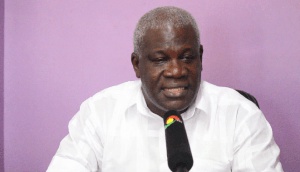The formula employed by the Public Utilities Regulatory Commission (PURC) in arriving at utility tariffs should be made public for all to see, interrogate and appreciate the appropriateness or otherwise of any reviews, the Industrial and Commercial Workers Union (ICU) has demanded.
General Secretary of the Union, Mr Solomon Kotei told Business Finder, ICU will insist on knowing what goes into the calculation of the tariffs so as to better appreciate any changes or reviews made.
The main objective of the AAF was to review quarterly, electricity tariffs to reflect changes in factors whose effects on operations were considered beyond the control of the utility companies namely the Volta River Authority (VRA) and Electricity Company of Ghana.
To a very large extent, volatility in the spot price of light crude oil (LCO) on the international oil market and the Ghana Cedi-US Dollar exchange rate and their impact on electricity generation from thermal sources became the main focus of the model. Though the Commission’s Proposed Transitional Plan for Electricity Rate Adjustment was designed solely for electricity, its implementation also has affected water tariffs.
Persistent low oil prices favour low tariffs
The Union is on record to have called for further reductions in the prices of petroleum products for consumers, on the back of falling prices of oil on the world market.
Crude oil prices began falling in October and continued to plunge last month due to oversupply and fears that weaker global economic growth would dampen energy demand. The price of both benchmark US crude and the standard for internationally traded oil fell 22 per cent in November.
Real incomes overtaxed
There are too many taxes on the real incomes of workers and so it becomes unbearable when tariffs are hiked.
“When fuel prices and tariffs go down, we believe life becomes a bit more comfortable for all Ghanaians; for motorists, commercial drivers, market women and it will affect the entire fabric of the economy,” Mr Kotei stated.
TUC calls for 15% downward review
The Trades Union Congress (TUC) has proposed a 15 percent reduction in utility tariffs “to reflect wages and salaries of Ghanaians.”
It maintained that Ghanaians were not supposed to suffer for the 21 per cent energy losses by utility service providers, and urged the PURC to consider the general low wages of Ghanaians in reviewing the tariffs.
Business News of Thursday, 24 January 2019
Source: thefinderonline.com













